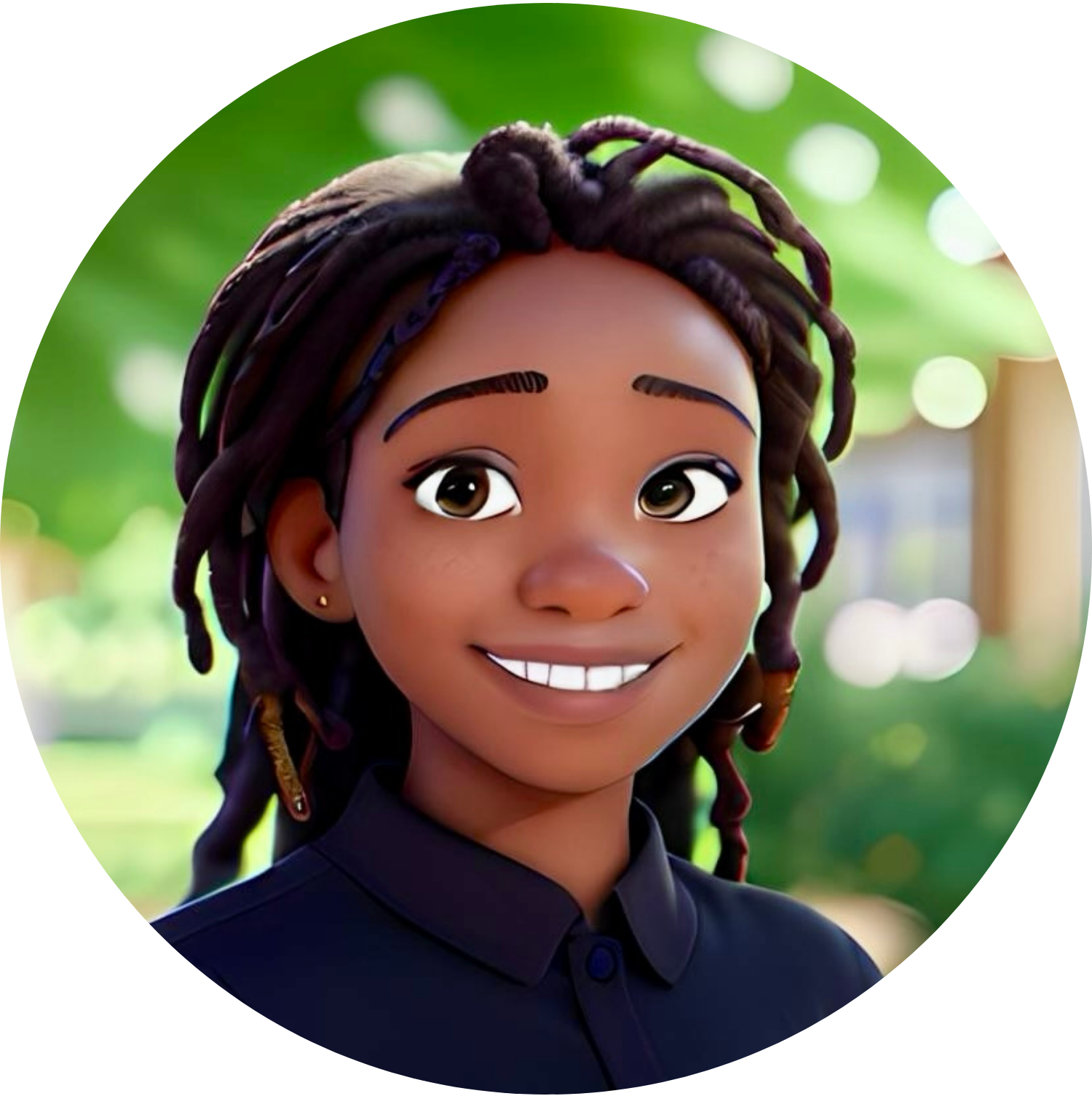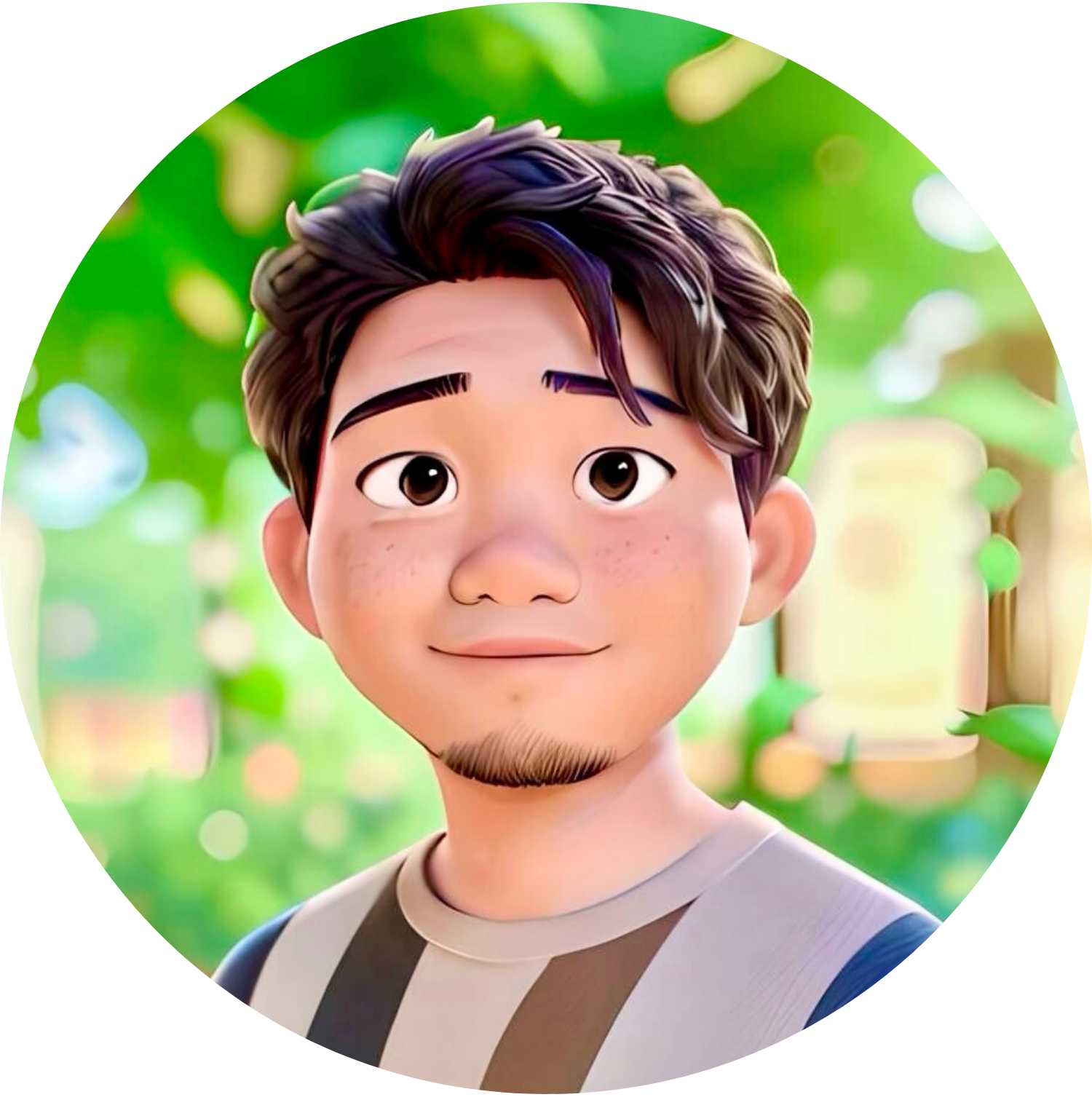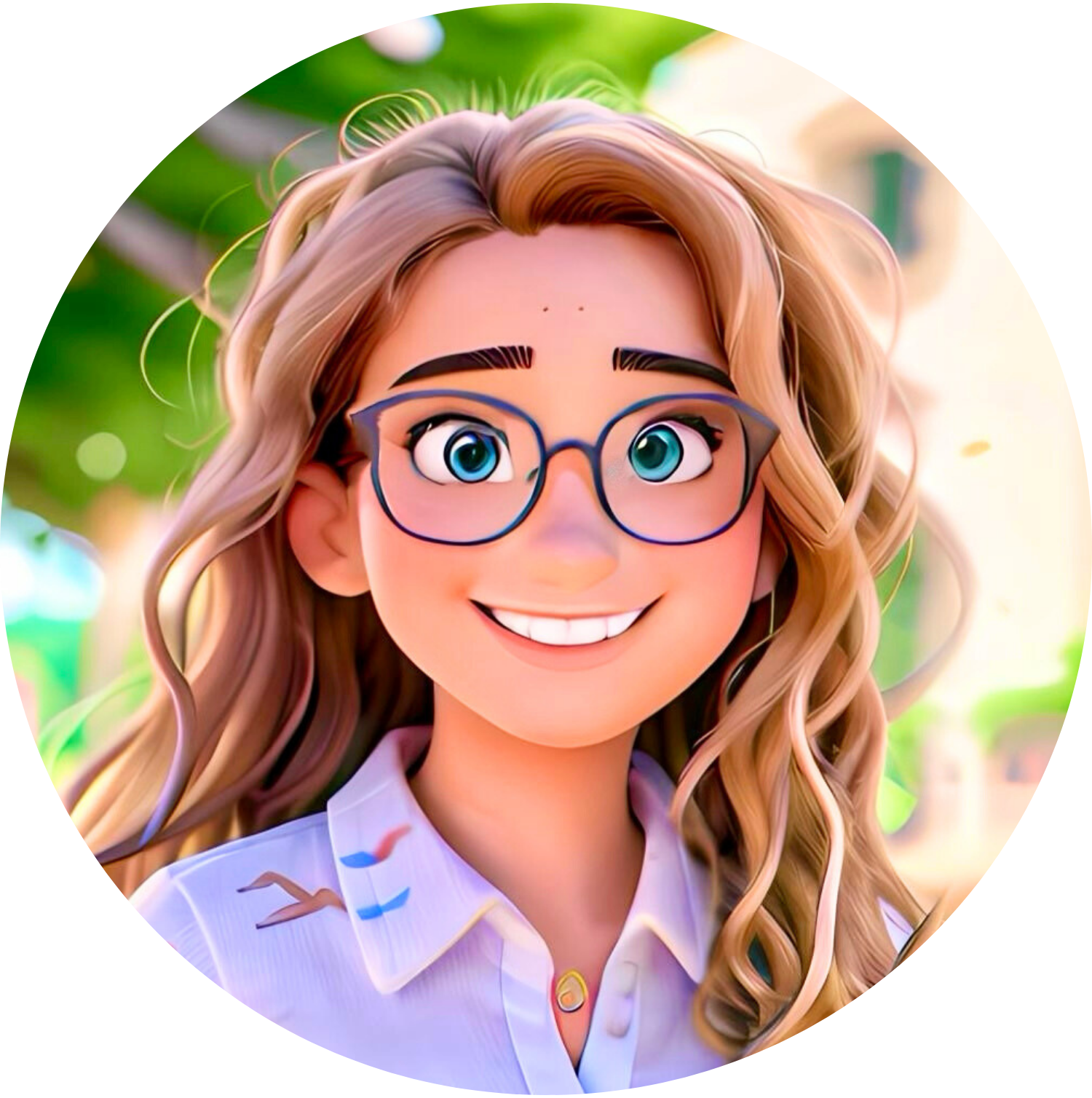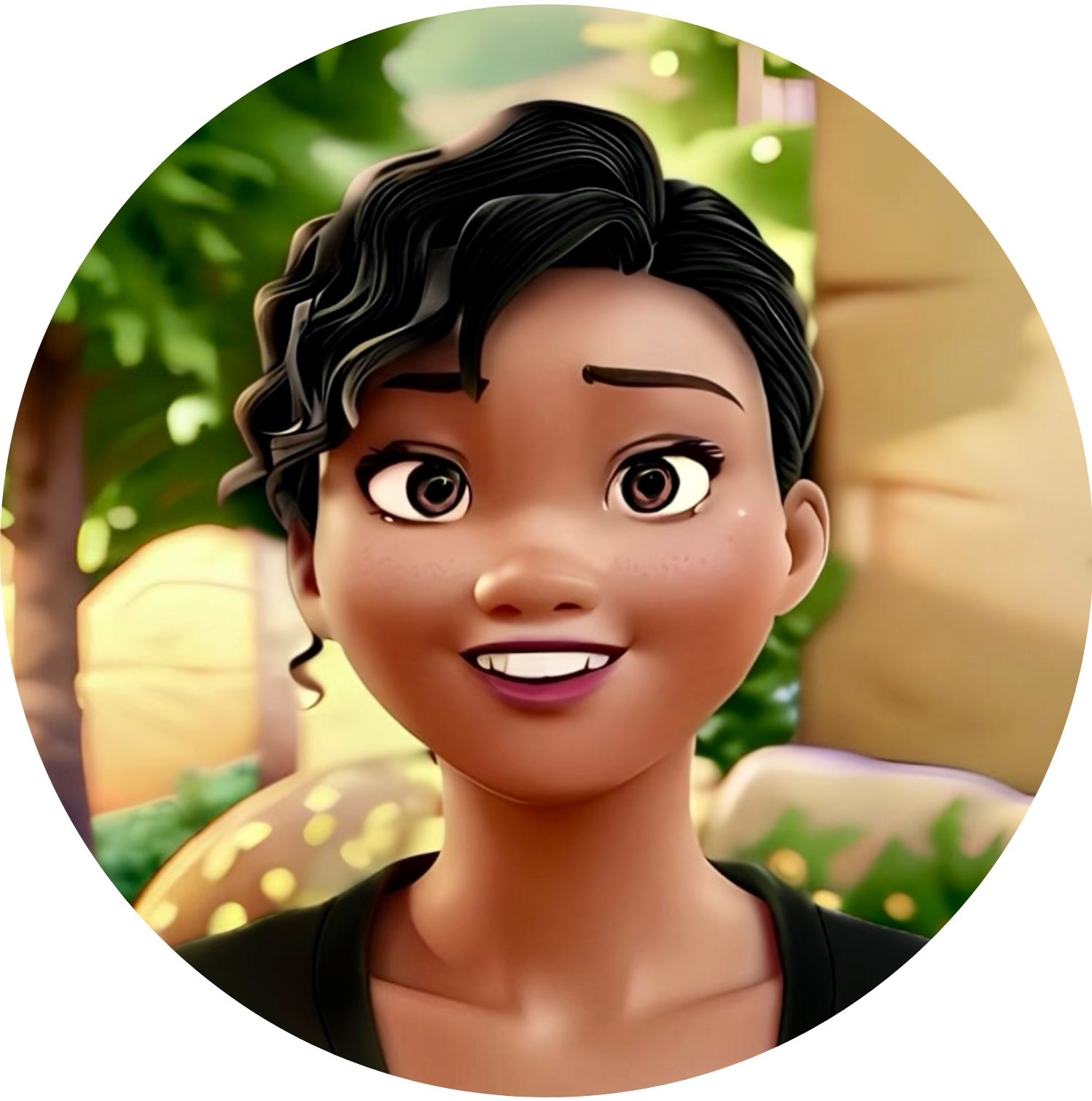- Habibatou Ba, Interim Director
- Ari Willis, Support Specialist
- Ariana Barer, Educator
- Erin Offer, Support Specialist
- Gloria Cardinal, Indigenous Support Specialist
- Hanieh Yazdi, Administrative Assistant
- Ogake Angwenyi, Support Specialist
Habibatou Ba, Interim Director
Pronouns she/her
Habibatou was born and raised in Dakar and moved to New York City at the age of 15 before setting roots in this xʷməθkʷəy̓əm, Skwxwú7mesh, and səlilwətaɬ territory 15 years ago.
Habibatou’s interest in social justice and cultural understanding was sparked during her studies at the United Nations International School in New York City, which exposed her to 100 nationalities and a myriad of cultures and gave her a platform to speak her mind. This spark led her to study Cultural Anthropology and Philosophy at UBC, which not only helped her understand that her differences were an asset, but also led her to work on projects that focused on communities that were fleeing violence.
Habi combines a deep experience in harm reduction and trauma informed practices centered on feminist and anti-oppression values, with a lust for life and insatiable curiosity. She worked at the SASC, and also spent 10 years working in the Vancouver Downtown Eastside in transitional housing shelters and recovery projects that provide support to sex workers, people fleeing domestic violence, and gender-based violence. In addition, she went to culinary school to train as a chef and worked as an apprentice in a reputable fine dining restaurant, which introduced her to structural and collective work and the power of food in healing.
She comes to this work always thinking of different ways to support one’s healing path. She truly believes that healing happens in ways we connect with our environment, it happens in relation to our intersections, some of which include having lived in three different countries, speaking fluently in three different languages (English, French, and Wolloff), the culinary arts, anthropology, and her experience working in sexual violence prevention & response. On her days off, you can find Habi enjoying walks/foraging with her daughter and dog, cooking up a feast, or weightlifting at the gym.

Ari Willis, Support Specialist
Pronouns they/them
Ari is a queer, non-binary Korean adoptee, settler, and writer who is humbled to walk alongside individuals on their healing journeys. They have been involved in anti-violence work for over ten years in paid and volunteer roles and for many additional years in community.
Ari was born on Jeju Island, South Korea, and raised on the traditional and unceded territory of the Katzie and Kwantlen nations. Their academic background is in law, gender studies, and English literature. Prior to SVPRO, Ari worked at Salal Sexual Violence Support Centre supporting trans, gender diverse, and 2-Spirit individuals who had experienced sexual violence. In this role, they were a part of an organizational and sector-wide shift to increase access and safety for gender diverse individuals seeking support services.
Ari has also acted as an advocate in the Downtown Eastside, a legal researcher, and a board member with Ishtar Transition Housing Society. As part of an intervenor coalition of anti-violence organizations, they had the opportunity to provide legal support in a strategic litigation case at the Supreme Court of Canada.
Anti-oppression, decolonization, and collective liberation are core values for Ari, and they are grateful to ground their work and life in these frameworks. In their spare time, Ari loves to solo hike and camp, write short fiction, and brainstorm and then procrastinate working on creative projects. When not at work or in the woods, you can find them searching for backroads on their motorcycle, Tiny.

Ariana Barer, Educator
Pronouns she/her or they/them
Ariana has been a professional in the anti-violence field for over 10 years. She is Ashkenazi Jewish with ancestors from Eastern Europe who were displaced by violence, and takes that to heart in considering the colonial displacement and active resistance of the Indigenous people on whose land she lives. She came to unceded coast salish territories in 2011 from Amiskwaciy-Wâskahikan (Edmonton, Alberta) – Cree, Blackfoot, Métis, Nakoda, Tsuu T’ina, Dene (Treaty 6) territory – to attend UBC’s Faculty of Education for graduate studies after completing a BA in Sociology at the University of Alberta. Her SSHRC-funded masters thesis was a critical analysis of representations of responsibility for sexual assault prevention in mainstream media and police discourse, countered in grassroots anti-violence activism.
Before joining SVPRO in 2018, she worked at Salal Sexual Violence Support Centre, formerly WAVAW Rape Crisis Centre, for 7 years, providing training and education for service providers across BC, crisis line operators, high schools, post secondary institutions, media outlets, touring theatre productions, and the public.
Ariana has also been a choreographer in dance, theatre, and choral productions for over 10 years, and spent 9 years as a feminist radio producer and host. She is keenly aware of how much can be done through the arts and media to question and shift cultural norms and beliefs around sexual harm as a seemingly inevitable part of life. Invested in how sexuality, sexual harm, queerness, race, trans and non-binary and BIPOC performers, and survivors are represented, she completed training in 2021 to become a certified intimacy coordinator for film and television.
Ariana believes that anti-violence movements, and all social justice efforts, are fueled by the unique gifts, talents, and perspectives we each bring to this collective work. Supporting and learning from the next generation of changemakers gives her life.

Erin Offer, Support Specialist
Pronouns she/her
Erin, a queer mixed-race settler, was born and raised on the traditional, ancestral, unceded territories of the Matsqui, Kwantlen, Katzie, and Semiahmoo Nations. After completing her BA in Political Science from UVic, she delved into documentary and independent film and TV before returning to school for her Bachelor (UBC) and Master of Social Work (U of T) degrees. For several years, Erin practised social work in Vancouver’s Downtown Eastside, in outreach, case management, and counseling roles in HIV/AIDS care, harm reduction and substance use treatment, and women’s programs.
Her approach to social work is rooted in the wisdom of family, ancestors, colleagues across disciplines, and the community she serves. She believes in our shared responsibility for each other’s well-being, always striving to prioritize humility and empathy in our contributions. Understanding the complexity of individual journeys, Erin aims to contribute to a safer and empowering environment where people can recognize and amplify their inherent strengths and resources, and move towards healing in their own ways.
She dreams of a world where children can simply be themselves, where communities work together for the well-being of all, and where the harmful systems of patriarchy and colonialism are left behind for collective healing.
Outside of work, Erin enjoys being the enthusiastic sidekick to her favourite comedian—her thrill-seeking toddler—as they sample every slide that Vancouver’s playgrounds have to offer. Erin is humbled and privileged to be able to support others on their journeys in this complicated world.

Gloria Cardinal, Indigenous Support Specialist
Pronouns she/her
Gloria comes from the Bigstone Cree Nation in northern Alberta. A chaser of adventure since childhood, she grew up in the Okanagan. Summers were spent swimming at the beach in Kelowna, and trying to sight the “Ogopogo”. As a teenager, her parents brought her and her sister to an Indigenous Elder to learn beadwork skills. She uses those skills today, such as loomwork, peyote stitch earrings, and leather work. She has also taught herself to make deer-hide drums, rattles, and moccasins.
She remembers taking long bike rides in the hills surrounding Kelowna and has continued to ride a road bike since then. She commutes by bike almost year round; the only weather that stops her is snow. She loves taking photos around Vancouver, and will often stop on the way to work to capture a moment with her camera. She calls herself an “idea person,” and it’s while riding that many of her creative ideas come to mind; there is something about the freedom and beauty of being outdoors that inspires her. She loves to travel, the next location on her list being either Chicago, or Paris.
Gloria completed her undergraduate degree in Saskatoon, SK, and her M.A. is from Regent College in Vancouver. She loves the academic life and enjoyed those years immensely, considering herself a “lifelong learner”. It’s during these years as a student that your identity, confidence, and independence grow and change.
Her career has centered itself in Vancouver, B.C. While working for Indigenous organizations and post-secondary institutions, she has always worked for and with Indigenous persons, being a support, an advocate, a coordinator, an instructor, and a mentor. In each role, she has helped others find their “best and most courageous self”. Most recently, while at the Indigenous Community Legal Clinic, she advocated for and helped numerous Indigenous people fill out their Indian Day School application forms. She also helped transcribe and write narratives from those experiences, and the words of her clients. Always sensitive to other’s feelings, she is a compassionate and caring person who will listen and help in the moment that it is needed.

Hanieh Yazdi, Administrative Assistant
Pronouns she/her
Bio coming soon!

Ogake Angwenyi, Support Specialist
Pronouns she/her
Ogake was born and raised in the city in the sun (Nairobi, Kenya) and is grateful for the serendipitous mix of luck, choice, and opportunity that has led her to call the beautiful lands of the Coast Salish Nations a second home.
An avid traveller, Ogake has been fortunate to live, study, and work in Wales, Canada, and France over the last decade. She completed her Bachelor in International Studies at Simon Fraser University in 2012 and her Masters in Social Policy at Sciences Po in Paris in 2018. Ever curious about the world and the human condition, Ogake constantly learns from those she is so fortunate to work with and for, and feels especially grateful for work that allows her to engage with people one-on-one.
Before coming to UBC, Ogake spent the last few years working in the anti-violence movement as a front-line worker and in team leadership, supporting and advocating on behalf of survivors of gender-based violence, interpersonal violence, and sexualized violence. Through various roles within transition housing and community-based victim services as well as in her current role, Ogake endeavours to meet her clients where they’re at, and to offer a safe and supportive presence while honouring individual agency and providing meaningful options. Ogake is grateful for the unique privilege of being able to witness, in her clients, shared humanity, vulnerability, pain, strength, resilience, and triumph.
When she isn’t working, Ogake enjoys frolicking in the outdoors, cultivating her love for interior decor, singing out loud, gazing lovingly at flowers, and reading through her growing collection of books and magazines.
